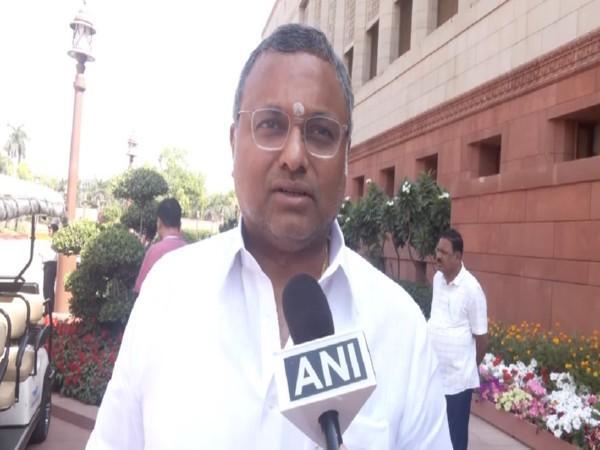
Urge Yogi to teach southern languages in UP govt schools: Karti
The ongoing debate over the National Education Policy’s (NEP) three-language policy has taken a new turn with Congress MP Karti Chidambaram reacting to Uttar Pradesh Chief Minister Yogi Adityanath’s recent remarks. Adityanath had criticized Tamil Nadu Chief Minister MK Stalin, saying that the three-language policy was “anti-Hindi” and “anti-national.” However, Karti has hit back at Adityanath, urging him to teach southern Indian languages in the government schools he runs in Uttar Pradesh.
Karti’s response comes as a counter to Adityanath’s criticism of Stalin, who has been vocal about his opposition to the NEP’s three-language policy. Stalin has been adamant that the policy is an attempt to impose Hindi on other languages and cultures, and that it goes against the principles of federalism and linguistic diversity. Karti has echoed Stalin’s sentiments, saying that the opposition is not against the teaching of Hindi, but against the compulsory imposition of Hindi in Tamil Nadu.
“We are not against Hindi being taught in schools. We are against compulsory Hindi imposition in Tamil Nadu,” Karti said in a statement. “I would urge [Yogi Adityanath] to teach southern Indian languages in the government schools he runs in UP.”
Karti’s comments have sparked a debate over the NEP’s three-language policy, which aims to promote linguistic diversity and cultural exchange. The policy recommends that students learn three languages – their mother tongue, a regional language, and English. However, critics have argued that the policy is flawed and that it will lead to the marginalization of regional languages and cultures.
The NEP’s three-language policy has been welcomed by some as a step towards promoting linguistic diversity and cultural exchange. However, others have raised concerns that the policy will lead to the imposition of Hindi on other languages and cultures. The controversy has sparked heated debates across the country, with several states and political parties taking a stance on the issue.
The row over the NEP’s three-language policy has also taken a political turn, with several state governments and political parties weighing in on the issue. The Tamil Nadu government, led by MK Stalin, has been a vocal opponent of the policy, saying that it is an attempt to impose Hindi on the state. Other states, such as Kerala and Karnataka, have also expressed their opposition to the policy, saying that it will lead to the marginalization of regional languages and cultures.
On the other hand, some states, such as Maharashtra and Gujarat, have welcomed the policy, saying that it will promote linguistic diversity and cultural exchange. The central government has defended the policy, saying that it is aimed at promoting national unity and linguistic diversity.
The debate over the NEP’s three-language policy has also sparked concerns over the future of regional languages and cultures. Many have argued that the policy will lead to the marginalization of regional languages and cultures, and that it will promote the dominance of Hindi over other languages.
However, others have argued that the policy is necessary to promote linguistic diversity and cultural exchange. They say that the policy will help to promote the learning of regional languages and cultures, and that it will help to bridge the gap between different regions and communities.
In conclusion, the debate over the NEP’s three-language policy has sparked a heated debate over the future of regional languages and cultures. While some have welcomed the policy as a step towards promoting linguistic diversity and cultural exchange, others have raised concerns that it will lead to the imposition of Hindi on other languages and cultures. The controversy has also taken a political turn, with several state governments and political parties weighing in on the issue.
It is clear that the debate over the NEP’s three-language policy is far from over. As the controversy continues to unfold, it is essential that we engage in a nuanced and informed discussion about the future of regional languages and cultures.
Sources:



